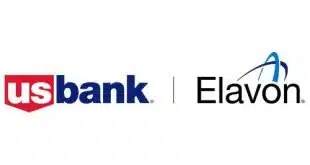By Tom Byrnes, SVP, Marketing
If you’re an Independent Software Vendor (ISV), one of the necessary elements of the business you’re in is a relationship with a payment processor. While the rest of the technology landscape has shifted to cloud-hosted platforms, processors have clung on to their mainframe-based legacy stacks and operated in much the same way they have for the last 30-plus years.
Basically, if you’re in the payment processing business, the rule of thumb these days comes down to that old adage: “If it ain’t broke, why fix it?”
But if you are an ISV, that may not be the answer you want to hear.
Although payment processing may just be a “part” of an ISV’s overall solution, customers won’t see it that way. They will look to you for payment expertise and the ability to solve all their problems. Any gaps can often result in tension that may ultimately result in higher churn rates.
Here are some common support challenges that every ISV faces:
Manual Application Headaches
Onboarding is a complex process, but many ISVs still use a dated approach that starts with a paper application getting scanned and emailed to the new account. It’s all too common to receive applications that are missing basic fields. That requires a call to the customer to track down the missing information. And even though you have already “won” the account, you can’t start generating revenue until that first transaction hits the rails.
Underwriting Complexities
Underwriters always ask for bank statements, creating another “ask” to your customer. But this is also far from a standard set of requirements. Some may want one to two months of statements, while others want to see a far greater set of documentation, especially if an account is considered risky. It’s natural for the customer to view the whole process as disruptive.
Looking for Real-Time Data?
Over time, the biggest issue in supporting an account may be the ability to access customer payment data. Having timely, accurate data is crucial. Yet if your customer requests their transaction data, it’s highly unlikely that you can get that information when and how they want it.
Typically, the processor will issue you the data when they choose – not when you need or want it. If you require a different format, that becomes a “custom request” that typically entails extra fees and delivery time.
The Future is Here: Automated Processes
In contrast to the traditional manual processes, having a cloud-enabled processor means you can take advantage of all the latest advances, and this can have a huge impact on everyday operations. Standardization simply streamlines onboarding, and a cloud-based application would make updating information faster and easier. Taken a step further, creating a range of uniform underwriting requirements would allow a system to anticipate merchant requirements and auto-generate documentation requests. Once underwriting is completed, the ability to pre-determine whether an account needs only hardware or hardware and software depending upon how they want to accept payments would accelerate deployment phase. When combined, this type of solution would empower the ISV to issue automated approvals with the ability to offer MIDS instantly, allowing merchants to begin processing same day and ISVs to start driving new revenue.





